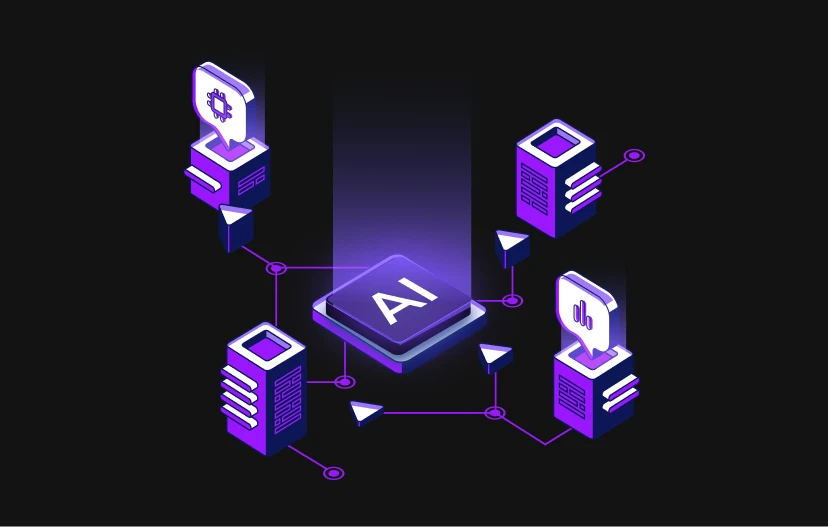What’s holding back AI in the world’s most sensitive industries
AI has the potential to transform the most important sectors in the world—but for organizations that handle sensitive, regulated data, today's tools don't go far enough. Banks, national security agencies, and healthcare providers are eager to adopt AI. Yet in each case, serious limitations around security, privacy, governance, and deployment prevent meaningful progress.
We spoke with several security and AI leaders across industries where sensitive and private data is core to the business—financial services, government, and healthcare. Across the board, we heard the same thing: they want to use AI—but only if it meets the strictest security and compliance requirements.
This post explores three real-world scenarios—global banking, national intelligence, and healthcare—where AI could make an enormous impact. In each case, the platform that would unlock this potential does not exist today. What's missing is a secure, controllable, enterprise-grade AI infrastructure—built from the ground up for high-trust environments.
1. A Top 100 Global Bank
You are a leading 100 global bank operating in dozens of countries. You need to manage regulations for each location regarding data privacy, financial risk, sovereignty, and internal governance. You want to use AI to improve operational efficiency, reduce manual overhead, and modernize legacy systems.
The risk is too high for critical workflows. Your most sensitive models—like real-time risk assessments, fraud detection, or customer financial data processing—still run in tightly secured, often on-premises environments. Sending that data through a third-party model hosted in the public cloud simply isn't an option.
You could:
- Try to build a secure AI pipeline in-house, or
- Look to buy a ready-made platform built for your environment
The issue? That platform doesn’t exist. Not yet.
A handful of top banks with thousands of engineers and deep AI expertise might be able to construct their own systems. But for the vast majority—even within the top 100—this is not feasible on a scale. There is no out-of-the-box solution that meets the combined needs of performance, compliance, privacy, auditability, and fine-grained control.
2. A National Intelligence Agency
Now take it further.
A national intelligence agency deals with petabytes of data—signals, surveillance, communications, satellite imagery—and needs to find insights quickly. AI is uniquely capable of extracting patterns from this kind of complex, high-volume input. But deploying AI in this environment brings another level of difficulty.
These systems run in air-gapped environments, where the data, the models, the infrastructure, must be locked, monitored, and protected from both external attacks and insider threats.
But that raises a significant question:
- How do you update models and apply security patches when the system is completely disconnected?
- How do you scale these systems across regions while maintaining centralized control?
- How do you ensure no data ever leaks, even in complex operational environments?
No existing commercial AI platform can handle this today. Firewalls and wrappers around cloud-hosted LLMs aren't enough. Even open-source models in containers don’t solve for secure distribution, trust boundaries, or operational resilience at this level.
The technology stack that intelligence agencies need—one that is fully self-contained, updateable offline, globally deployable, and airgap-compatible—simply hasn’t been built yet.
3. A Major Healthcare Organization
Consider a large healthcare network of hospitals, research groups, labs, and insurance companies working with personally identifiable information (PII) and protected health information (PHI). This personal information is closely governed by regulations such as HIPAA and GDPR. Every action, from a physician's scribble to a research study, includes data that needs to be kept private and secure. And yet, with all these strict regulations in place, handling and analyzing all that information is still a problem.
Here, AI can have a dramatic impact. AI has the ability to automate tedious work such as clinical documentation, accelerating administrative tasks for doctors and nurses. Researchers can use AI to find new medicines quickly and improve diagnostics by detecting patterns that may escape the human eye. AI can sift through enormous patient databases to uncover insights, enabling doctors to make better treatment choices. Even more thrilling, AI might tailor care in real time, modifying treatment regimens according to a patient's then-current state of health. However, AI in medicine has some very dire challenges.
Any solution employing AI must ensure absolute data privacy from beginning to end. It must provide secure interaction among hospitals, research groups, and insurers without compromising leakage. Inevitable audit trails would have to be rigorous to establish conformity with mandates. Most importantly, perhaps, the system should ensure that data is not abused, whether by insiders or by accidental release. Without them, the disadvantages may outweigh the advantages.
Current AI tools can’t deliver on this. Public APIs—even with enterprise settings—don’t meet the threshold. On-prem deployments of general-purpose models often lack the control layers, governance frameworks, and cross-organizational data exchange capabilities required in this space.
Once again, the pattern repeats: the AI platform this industry needs—one that combines advanced capabilities with built-in privacy and compliance—is still missing.
The Common Thread
AI is transforming businesses such as banking, national security, and healthcare, but trust is a huge issue.
Companies want to use AI but are unwilling to compromise security, privacy, and control. It's not about strengthening AI models; it's about creating a platform built for situations in which data is sensitive, access must be secured, and all actions must be traceable and secure. Currently, that type of AI platform does not exist.
Merely wrapping a firewall around a large language model will not do. AI security requires a total rethink, beginning at the basics. It must operate flawlessly in air-gapped settings. It must permit zero-trust collaboration and mandate rigorous governance with transparent, verifiable compliance. Each update must be totally secure, with nothing lurking in the shadows or around the corner. Meanwhile, it must scale worldwide and ensure data sovereignty is never an issue.
AI needs to be designed for the real-world needs of high-stakes industries, not merely for convenience but for actual security.
Final Thoughts
AI has the power to transform how the most critical organizations in the world operate. But the tools they need—tools that are secure, private, compliant, and reliable—simply don’t exist in the market today.
Until they do, the most sensitive and high-value use cases for AI will remain out of reach.
The future of AI isn’t just about intelligence. It’s about trust, control, and accountability—built into the foundation.
It’s time to build that foundation.










